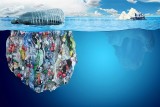
In today’s show we offer two related features:
Plastic Pollution in the Arctic, Green Chemistry (start time: 7:48) Try to wrap your brain around this statistic: by mid-century the mass of plastic in the oceans will weigh more than the total mass of fish if we continue with ‘business as usual,’ according to the World Economic Forum. Plastic debris, ranging from plastic water bottles to fish nets to invisible fragments, is choking seabirds and mammals all the way up to the Arctic, and quite possibly harming human health. How On Earth host Susan Moran recently attended the Arctic Frontiers conference in Tromso, Norway, where she interviewed one of the speakers, Jenna Jambeck, an environmental engineer at the University of Georgia. Dr. Jambeck directs the Center for Circular Materials Management, where researchers are designing materials and processes that both reduce waste and, like nature itself, reuse waste.
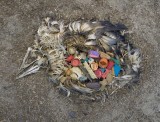
Grassroots Efforts Curb Plastic Pollution (start time: 20:24) In case you’re wondering what’s land-locked Colorado and your daily life got to do with plastic pollution in the ocean, our guest, Vicki Nichols Goldstein, founder and executive director of the Inland Ocean Coalition, discusses regional and national campaigns to curb plastic waste. The Suck the Straws Out campaign is one of many. You can get involved, starting with attending the Colorado Ocean Coalition‘s Blue Drinks happy hour on Feb. 15 in Boulder.
Hosts: Chip Grandits, Susan Moran
Producer: Susan Moran
Engineers: Maeve Conran, Chip Grandits, Evan Perkins
Executive Producer: Susan Moran
Listen to the show here:
Podcast: Play in new window | Download (Duration: 27:33 — 25.2MB)
Subscribe: RSS

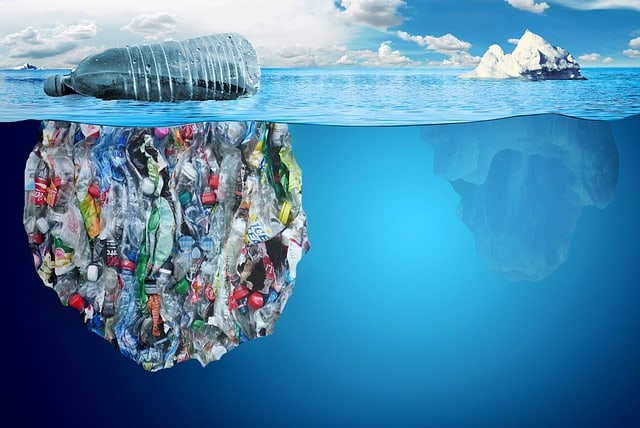


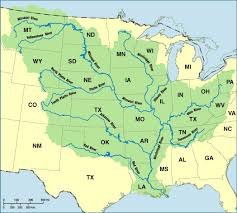

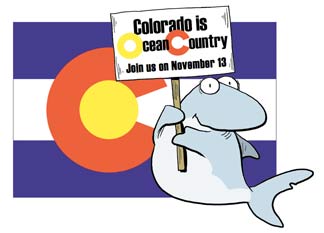
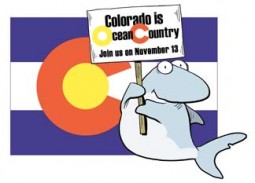 Feature #1 (time mark 5:30) When people think of Colorado, they usually don’t think about “oceans”. After all, Colorado doesn’t have much of a coastline these days, though it was definitely had oceanfront property a few hundred million years ago. However, being in a landlocked state doesn’t mean that there isn’t any thing we can do to impact the health and ecology of the ocean and marine biology. Co-host Joel Parker talks with Vicki Goldstein, founder and president of the
Feature #1 (time mark 5:30) When people think of Colorado, they usually don’t think about “oceans”. After all, Colorado doesn’t have much of a coastline these days, though it was definitely had oceanfront property a few hundred million years ago. However, being in a landlocked state doesn’t mean that there isn’t any thing we can do to impact the health and ecology of the ocean and marine biology. Co-host Joel Parker talks with Vicki Goldstein, founder and president of the 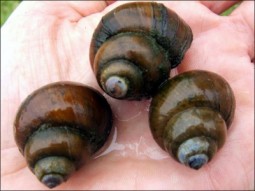 Feature #2 (time mark 14:10) Nitrogen – we can’t live without it, but you can have too much of a good thing. In its gaseous form nitrogen is harmless and makes up nearly 80 percent of the atmosphere. The worldwide population never would have reached 7 billion people without nitrogen, in the form of chemical fertilizer. But excess nitrogen –from fertilizer runoff, manure, human sewage and other sources is wreaking havoc on the environment. Co-host Susan Moran talks with John Mischler, a PhD student at CU Boulder, who is researching worms and snails in Colorado and Africa. He talks about how excess nutrients in ponds, lakes and elsewhere can lead to the spread of parasitic disease from trematodes to snails to us.
Feature #2 (time mark 14:10) Nitrogen – we can’t live without it, but you can have too much of a good thing. In its gaseous form nitrogen is harmless and makes up nearly 80 percent of the atmosphere. The worldwide population never would have reached 7 billion people without nitrogen, in the form of chemical fertilizer. But excess nitrogen –from fertilizer runoff, manure, human sewage and other sources is wreaking havoc on the environment. Co-host Susan Moran talks with John Mischler, a PhD student at CU Boulder, who is researching worms and snails in Colorado and Africa. He talks about how excess nutrients in ponds, lakes and elsewhere can lead to the spread of parasitic disease from trematodes to snails to us.